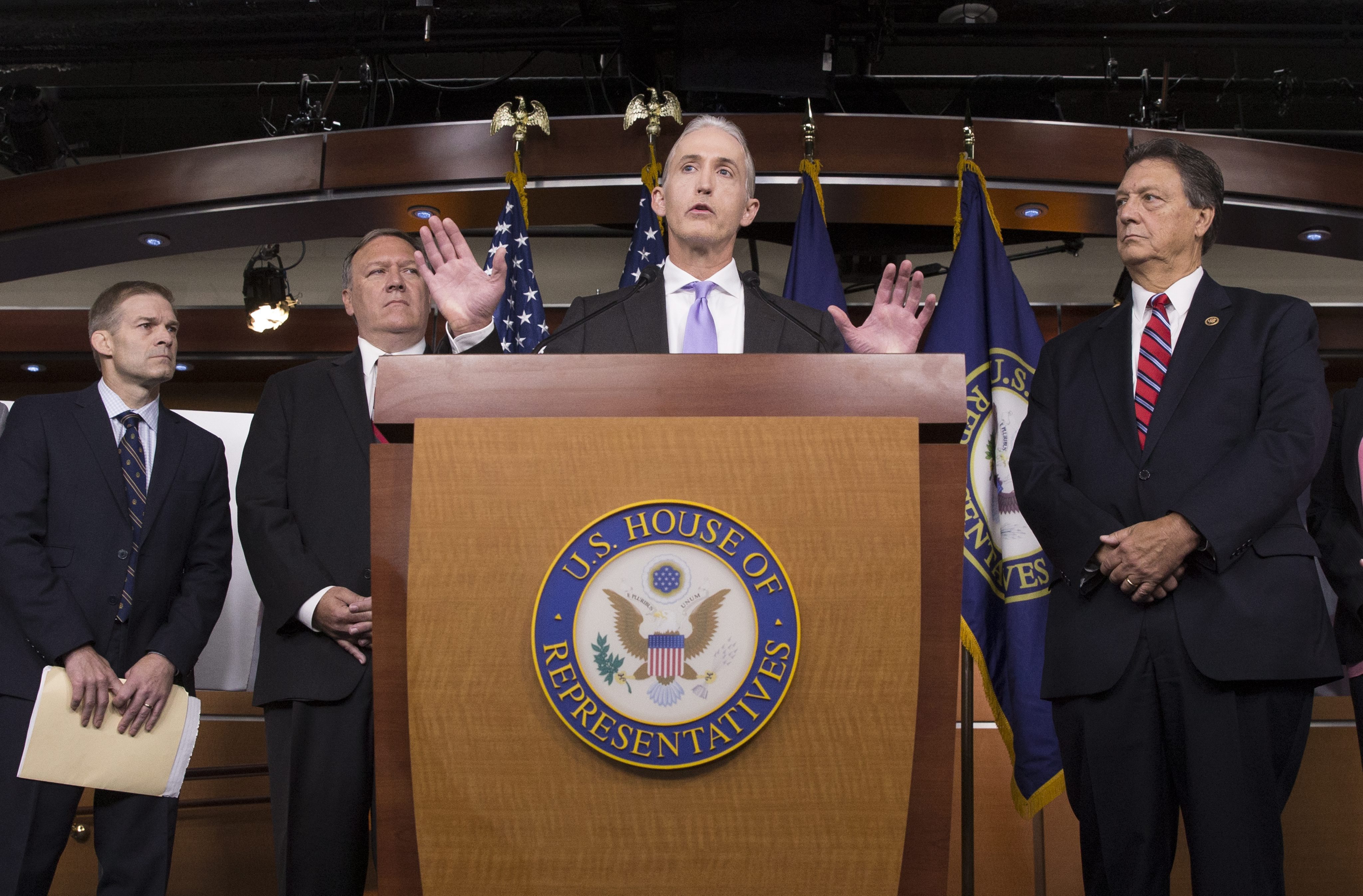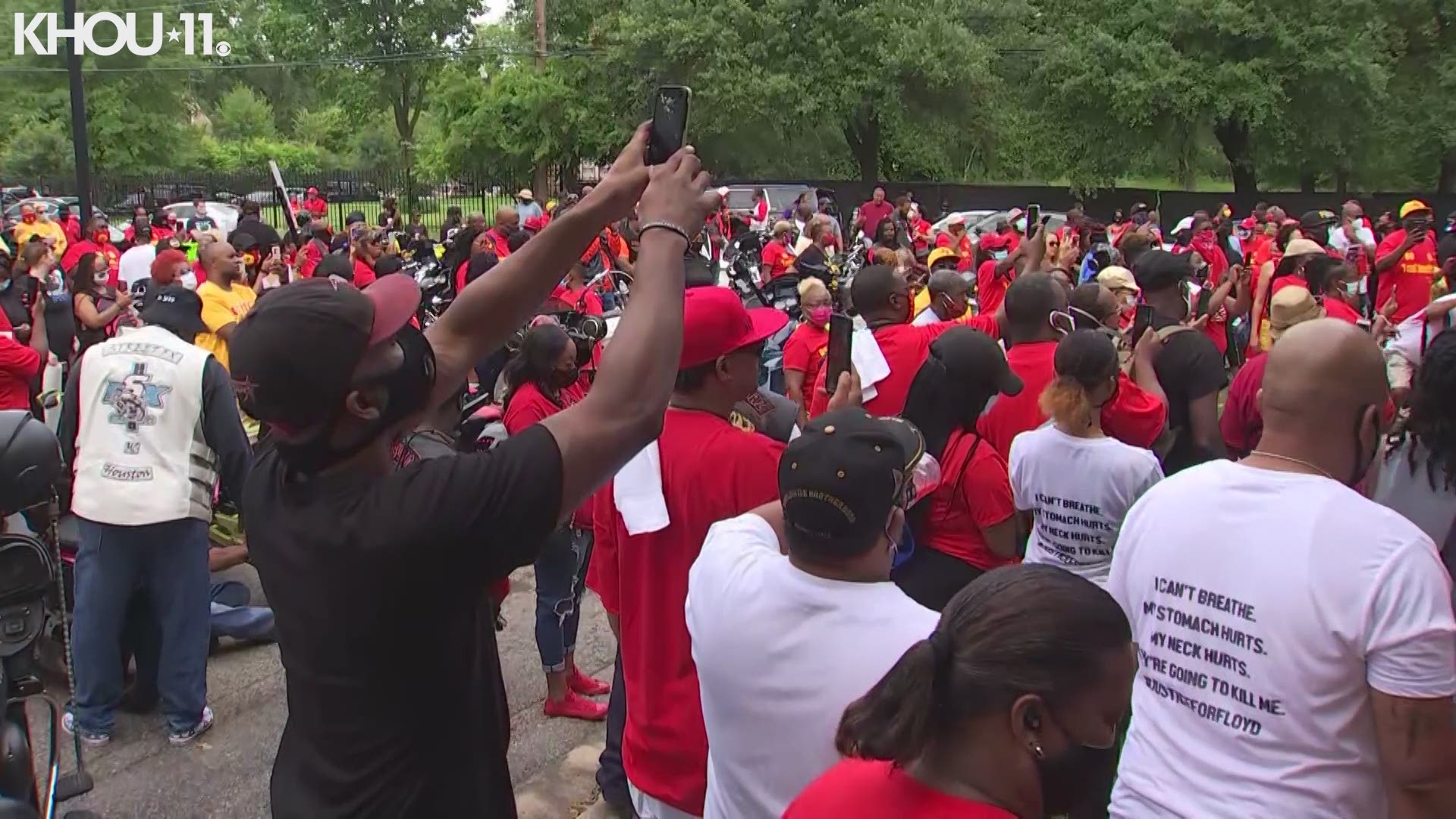![Benghazi report doesn't implicate Clinton [video : 86479900]](http://videos.usatoday.net/Brightcove2/29906170001/2016/06/29906170001_5003281308001_5003211021001-vs.jpg?pubId=29906170001)
"Fifty-six days," Rep. Mike Pompeo, R-Kan., intoned at a press conference Tuesday to unveil the House Benghazi Committee report. There is no way to understand the government's immediate response to the Sept. 12, 2012, attack, Pompeo said, "without understanding this took place 56 days before a contested political election for president."
![EPA USA CONGRESS BENGHAZI REPORT POL GOVERNMENT USA DC [image : 86478626]](http://www.gannett-cdn.com/media/2016/06/28/USATODAY/USATODAY/636027219330811970-EPA-USA-CONGRESS-BENGHAZI-REPORT.jpg)
The same can be said of the report that Pompeo and other Republicans were releasing. It can only be understood in the context of being released 132 days before the 2016 presidential election.
![GOP report: U.S. failed to protect Americans in Benghazi [oembed : 86478776] [oembed : 86478776] [oembed : 86478776] [oembed : 86478776] [oembed : 86478776] [oembed : 86478776] [oembed : 86478776] [oembed : 86478776] [oembed : 86478776] [oembed : 86478776]](/Portals/_default/Skins/PrestoLegacy/CommonCss/images/smartembed.png)
Everything about the Select Committee on Benghazi's two-year investigation has been political. Former House speaker John Boehner, R-Ohio, resisted creating such a committee until May 2014, when a conservative watchdog group uncovered a White House memo suggesting officials should stick to the story that the attack grew out of an organic protest, not a pre-planned terror attack. Boehner said the fact that the administration had not provided that memo to congressional investigators proved that a new committee was needed.
Seven Democrats voted in favor of creating the Benghazi Committee, perhaps the last shred of bipartisanship the process would see.
By the time the Benghazi committee was up and running, there had already been seven congressional investigations, some of which had been both bipartisan and critical of the administration.
The Senate Intelligence Committee issued a bipartisan report in January 2014 that concluded the attacks were preventable, security at the facility was insufficient, and intelligence reports gave too much weight to theory that the attacks were part of an organic protest.
The Senate Homeland Security Committee had issued a bipartisan report two years earlier concluding the State Department had failed to provide adequate security for the facility and intelligence agencies completely misunderstood threats on the ground.
But this was not those reports. Democrats and Republicans feuded throughout about who could call witnesses, who would be included in witness interviews, and what documents or people should be subpoenaed. Majority Leader Kevin McCarthy, R-Calif., famously said during a television interview that the Benghazi committee had helped drag down Hillary Clinton's poll numbers.
![AP CONGRESS BENGHAZI A USA DC [image : 86478994]](http://www.gannett-cdn.com/media/2016/06/28/USATODAY/USATODAY/636027226500149927-AP-Congress-Benghazi.jpg)
In the end, the two sides issued competing reports 24 hours apart, neither having shown their version to the other. The Republican version of the report had a few new details about the events and had rafts of blame for why there were not more details. Clinton and the Obama administration stonewalled, the Republicans said, delaying the report by months. Committee members Pompeo and Jim Jordan, R-Ohio issued a proposed addition to the committee report accusing the administration of actively trying to undercut the investigation, because the White House did not want to admit that it knew all along the Benghazi attack was a planned attack by radical Islamic extremists.
The Republican report alleges that Clinton and other in the administration slowed the military response to the attack and initially blamed it on an incendiary anti-Muslim video instead of on terrorism because they were trying to maintain a campaign message that al-Qaeda was in decline. But the report still has no proof that the four Americans could have been saved.
![3 key Benghazi issues where GOP, Democrats differ [oembed : 86478750] [oembed : 86478750] [oembed : 86478750] [oembed : 86478750] [oembed : 86478750] [oembed : 86478750] [oembed : 86478750] [oembed : 86478750] [oembed : 86478750] [oembed : 86478750]](/Portals/_default/Skins/PrestoLegacy/CommonCss/images/smartembed.png)
![Clinton says 'it's time to move on' following release of Benghazi report [oembed : 86479018] [oembed : 86479018] [oembed : 86479018] [oembed : 86479018] [oembed : 86479018] [oembed : 86479018] [oembed : 86479018] [oembed : 86479018] [oembed : 86479018] [oembed : 86479018]](/Portals/_default/Skins/PrestoLegacy/CommonCss/images/smartembed.png)
Politics is not only on the Republican side. The Democratic report released Monday somehow got in 23 references to Donald Trump, the presumptive Republican presidential nominee. This is largely because the Democratic report was not about the events surrounding the Benghazi attack but the events surrounding the committee investigating the Benghazi attack.
As a result of all this, there is plenty of material for two political parties to get what they want: new talking points they can carry into the election season bashing the opposing party for putting propaganda over truth.
But there is a truth here, and Pompeo and Jordan included it in their "additional views."
"There is a time for politics and a time to set politics aside. A national tragedy is one of those times when as a nation we should join together to find the truth. That did not happen here."
Clearly.
![2 conservatives hit Clinton on Benghazi [oembed : 86478792] [oembed : 86478792] [oembed : 86478792] [oembed : 86478792] [oembed : 86478792] [oembed : 86478792] [oembed : 86478792] [oembed : 86478792] [oembed : 86478792] [oembed : 86478792]](/Portals/_default/Skins/PrestoLegacy/CommonCss/images/smartembed.png)
![White House: Benghazi report is political [oembed : 86481020] [oembed : 86481020] [oembed : 86481020] [oembed : 86481020]](/Portals/_default/Skins/PrestoLegacy/CommonCss/images/smartembed.png)


